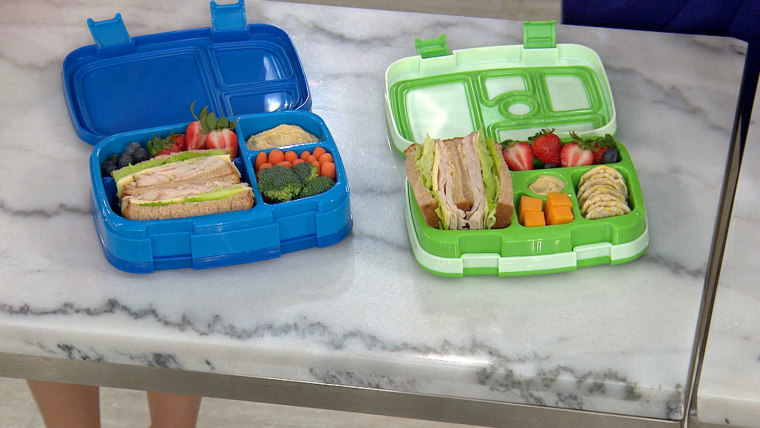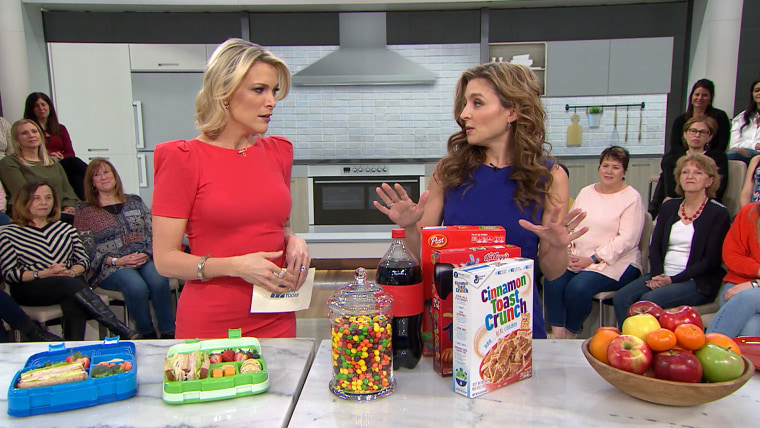Most of us have been there: You're starving, your stomach's growling, and you're feeling frantic for food. So you open the fridge, grab the first thing you see, and scarf it down.
But stop right there, said Dr. Susan Albers, a clinical psychologist at the Cleveland Clinic who specializes in eating issues. She's a proponent of mindful eating, which means paying attention to how you eat, more than what you put in your mouth.
This is especially important if you have kids because you're modeling behavior that children will then emulate.
"Mindful eating is not a diet — there are no menus and recipes. It’s about teaching really good habits. Sometimes kids will eat in front of their screens. We don’t teach them to focus on their food, to see it and taste it in a different way," she said.
Bear in mind that according to the Centers for Disease Control and Prevention, 17 percent of American children are obese, so good food habits matter.

That's why it's important to pay attention to what you're ingesting. And work with your kids to do the same. Here's how, per Albers.
1. Show, don’t tell. Kids absorb and model what you do. So model mindful eating. Eat slowly. Sit down at the table. Put your phone away. It’s hard because as adults we have so many mindless eating habits that we’re not aware of.
2. It’s fine for kids to have a snack as long as they’re focused on it. Sitting at the kitchen table and having them sit down is huge. Make sure they’re sitting down when they’re snacking, which makes them pay more attention to what they’re eating.
3. Place foods in a convenient location for kids to reach themselves. In my refrigerator, kids’ snacks are placed at eye level. Leave fruit where they can see it, or leave a fruit bowl on your kitchen counter. Make sure it’s handy.
4. Do not talk about restricting kids. For older kids, they’re talking about dieting or limiting food. Get rid of that language. Ask if they feel satisfied, or how something tastes. Help them be discerning eaters.
5. Involve kids in what they eat. Have them cook and shop with you. Keep them involved in the entire process.

6. Plan ahead. When kids come home, they are hungry and reach for the first thing they find. Have a snack pre-packed with their names on it and they will reach for it.
7. Don’t be the food police. It takes time for kids to learn these mindful eating skills. They’re surrounded by mindless eating. Don’t get dismayed. It’s OK for them to have treats now and then. You just don’t want them to depend on treats all the time.
8. Talk out loud about food and hunger. We don’t talk out loud about why we make the food decisions we do. But explain out loud why you’re having this yogurt and show kids the decision-making process.
9. Don’t use food as a reward. Give them a sticker or a pencil. Using food as a reward teaches them that positive behavior should be rewarded with food. Fast forward and as adults, they use the same strategy.
